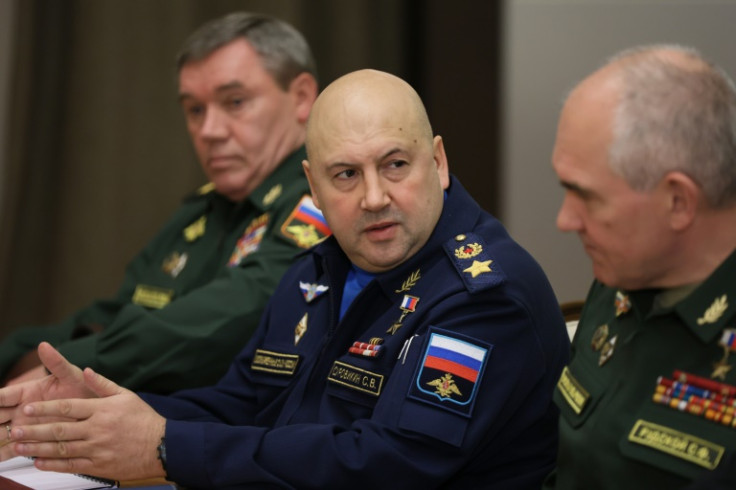Surovikin: The Ruthless Face Of Russia's Campaign In Ukraine

With his shaved head and uncompromising scowl, General Sergey Surovikin has become the face of Russia's "special military operation" in Ukraine in just a few days.
A veteran of Moscow's wars since the Soviet invasion of Afghanistan, Surovikin has a ruthless reputation and is the man behind the massive bombing campaign on Ukraine.
Dubbed "General Armageddon" in Western media, the 56-year-old was named commander of Russia's forces in Ukraine on October 8.
His task is to turn the tide after a series of battlefield defeats that have forced Russian forces to retreat on several fronts.
While the army has remained silent about its setbacks on the ground, he appeared on Russian state television on Tuesday.
Dressed in military uniform and surrounded by Russian flags, Surovikin said of operations in Ukraine that the "situation is tense".
"We will not exclude taking the most difficult decisions," he said.
Born in Siberia, Surovikin fought in Afghanistan in the 1980s, after which he was involved in the hardliner coup in 1991 that heralded the fall of the Soviet Union.
He went on to fight in the second Chechen war in the 2000s and the Syrian campaign in 2015.
"He is very well known. The military talk a lot about him. He has a reputation for being a crazy, traumatised, ruthless commander," a Russian military expert told AFP on condition of anonymity for fear of reprisals.
President Vladimir "Putin adores him. In Syria, he kicked officers out of the general staff to go and head up assaults," he said.
Vasily Kashin, an expert in geopolitics at Moscow's Higher School of Economics, said he had "managerial and strategic qualities".
"It is clear that Russian leaders consider Surovikin as the commander best able to head up such a major military effort," he said.
Independent analyst Alexander Khramchikhin noted that Surovikin previously headed up Russian forces in southern Ukraine which were the ones that had "succeeded the most".
"It is the only requirement in the current situation," he said.
The change of strategy is already noticeable.
Two days after Surovikin's nomination, the Russian army unleashed a wave of drone and missile attacks on Ukrainian infrastructure targets, causing electricity blackouts and water outages in several cities.
The bombings have continued and promise a harsh winter, with Ukrainian officials urging people to limit their electricity use.
Before Ukraine, Surovikin was one of the commanders of Russian forces in Syria.
Human Rights Watch in 2020 said he was among the Russian officers "who may bear command responsibility" for violations, including attacks on schools and hospitals.
In Russia he is known above all for his role in the failed coup in 1991.
He was imprisoned after troops under his command killed three pro-democracy protesters but was freed a few months later.
"The second time he was jailed was at the end of the 1990s for illegal arms trading but the sentence was suspended on appeal," said the expert who requested anonymity.
Surovikin's reputation has earned the respect of those seeking a tougher line in Ukraine.
Chechen leader Ramzan Kadyrov, who has been critical of the Russian military, said he was "100 percent satisfied" with the appointment.
Russian opposition figure Leonid Volkov accused Surovikin of being a "legendary thief" who got rich through illegal logging.
"He is a businessman, not a general," he wrote on Twitter.
Surovikin will be judged for his capacity to reverse Russia's fortunes in Ukraine and deal with the problems and mistakes that have piled up since the assault began in February.
Given recent Ukrainian advances on the southern front, he faces a particular tough challenge in the coming days -- give up the occupied city of Kherson or stay and fight.


© Copyright AFP 2025. All rights reserved.




















